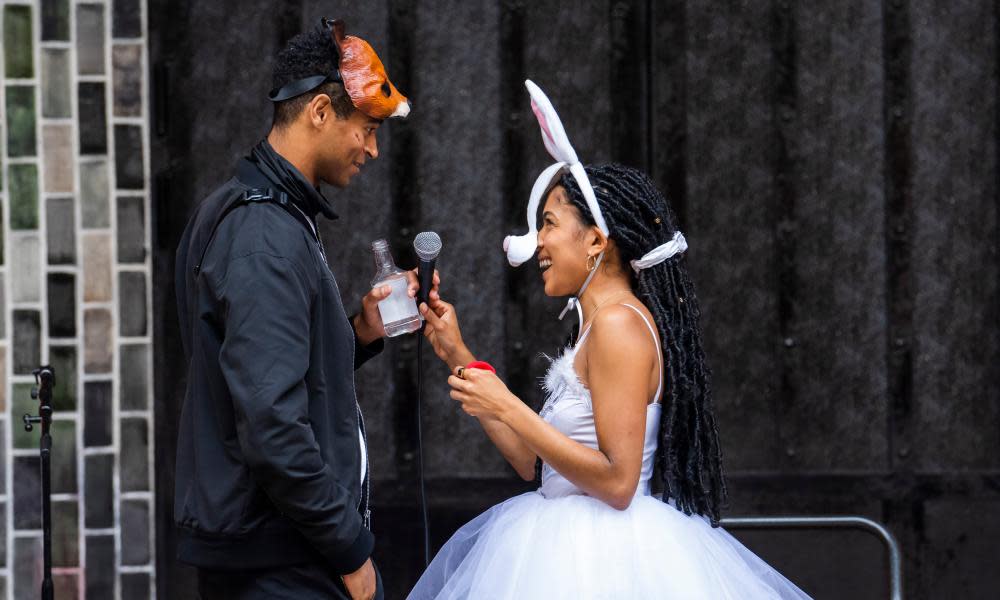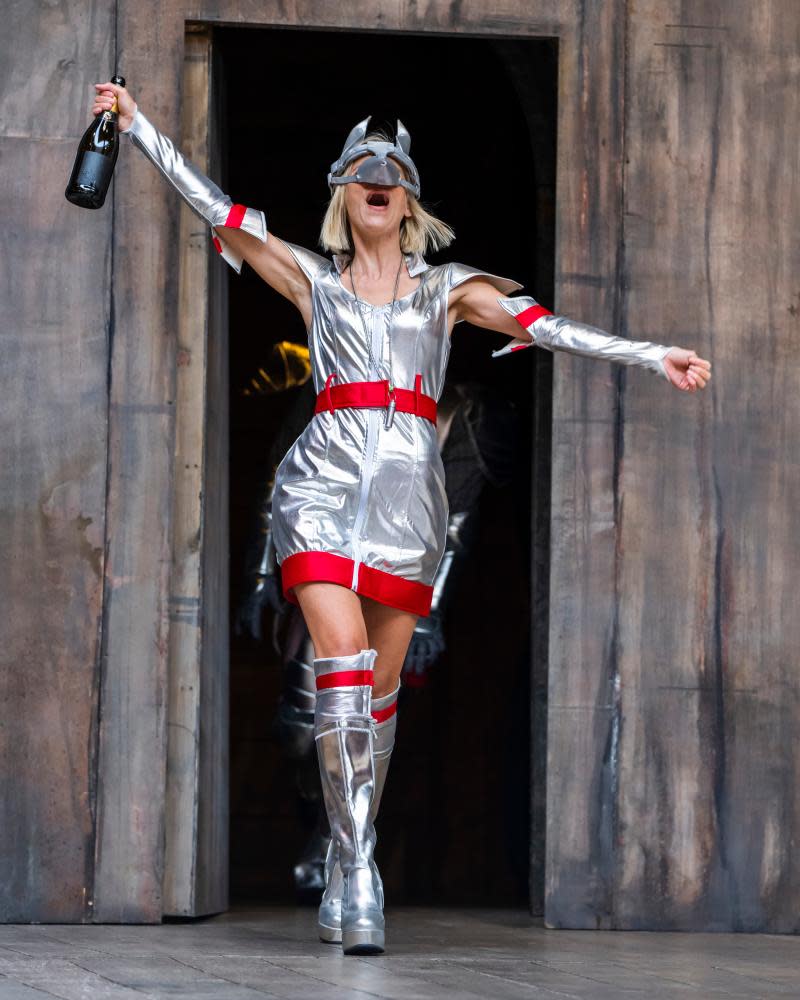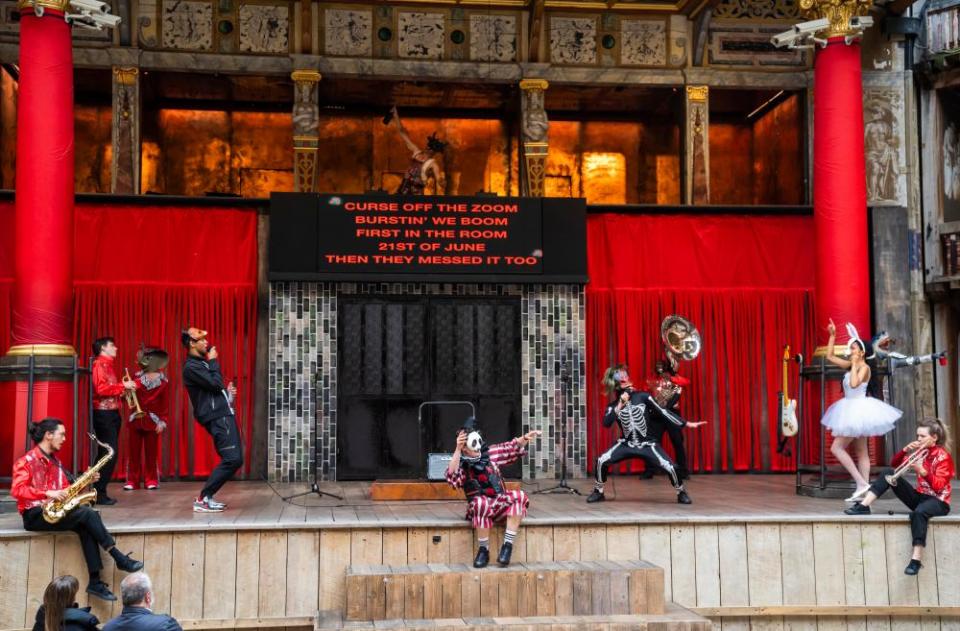Romeo and Juliet review – a bold rewiring with no room for romance

This is not the first major production of Romeo and Juliet in this pandemic year. Simon Godwin set the standard with his exquisite film hybrid and several others have similarly envisaged Verona in a modern landscape. What more can this latest staging bring us?
Certainly not much romance: this is a production without a single smooch. More irreverently, the love story is radically undercut and Ola Ince’s production is recalibrated to focus on Verona’s pervading social sickness and gang violence (there are not only knives but drugs and guns) as well as youth disillusionment and trauma.
The starry-eyed lovers, played by Alfred Enoch and Rebekah Murrell, are trainer-wearing teens whose passion is overshadowed by the factional feuding. Their double suicide does not wring our hearts but shocks and repels us. Irony streams through their romance and is most noticeable in the balcony scene, which is played for comedy above amour. Juliet giggles as she swoons for Romeo and trips up when he appears. Romeo pratfalls far more theatrically and appears clownish, hanging off a ladder as he moons after his new love.

Ince assisted Phyllida Lloyd on the Donmar’s Shakespeare Trilogy and here shows the same mix of modern audacity and appreciation for the text. She keeps a firm grasp on the verse so that it is not drowned out. The play is tightened to under two hours – and all the more gripping for it.
The most daring, potentially disastrous addition is a series of statements presented on a screen to signpost the relevance of Shakespeare’s themes today, scene by scene. This framing device, a hair’s breadth from appearing reductive and gimmicky, gains emotional power, irony or bathos as it goes along.
We are told, early on, that about 20% of teenagers experience depression before they reach adulthood; this grates, yet feels relevant as Romeo mopes for Rosaline. Then, a glinting sense of mischief accompanies the statement that “patriarchy is a system in which men hold the power” while a kickboxing Juliet is told to prepare for marriage. The foolish ardour of the lovers is made explicit this way too: “The rational part of the young person’s brain is not really developed until age 25”, we are told, just as Friar Laurence (Sargon Yelda) marries them in secret.
There is a standout performance as Mercutio by Adam Gillen, who plays his part with a dangerous, bug-eyed energy a little like that of his Mozart in the National Theatre’s Amadeus. Sirine Saba is a nerdy and neurotic Nurse, bringing comedy and warmth without turning the part into a clucking hen cliche.

Divested of their romance, Romeo and Juliet begin the play as the least interesting characters, with every other part overshadowing theirs for vibrancy. No other kind of chemistry is sparked between Enoch and Murrell that might fill the place of passion. But they grow stronger, especially Enoch’s earnest Romeo, and are both better as rebels and desperados when performing soliloquies.
The runaway highlight of this production is the band, which almost adds an extra charismatic character, particularly with its percussive sounds. There are witty trombones and trumpets played alongside punkishly performed numbers (from Arctic Monkeys, Jill Scott, the Streets). Max Perryment’s music raises the drama in fight scenes, while the Capulet ball is a cabaret (at which Dwane Walcott’s Paris woefully missteps by singing Lionel Richie’s Hello to a cringing Juliet). Mercutio’s Queen Mab speech is delivered against a single drum, beaten in time to its iambic pentameter. Jacob Hughes’s set is light on its feet with a skeletal greenhouse, both beautiful and modern, and a kitschy circular bed.
This is a high-stakes rewiring of Romeo and Juliet with so much energy and cleverness at play that the romance is barely missed at all.
At Shakespeare’s Globe, London, until 17 October. Live streamed on 10 July and 7 August.


